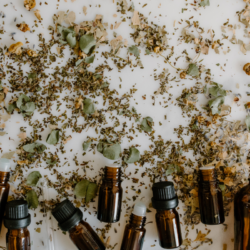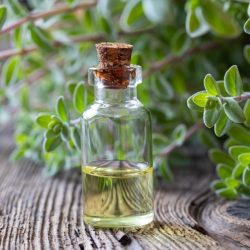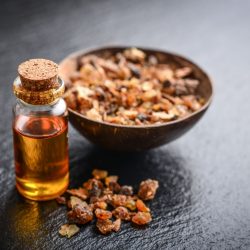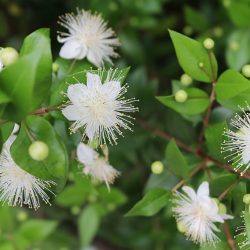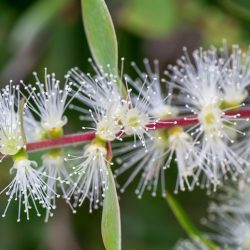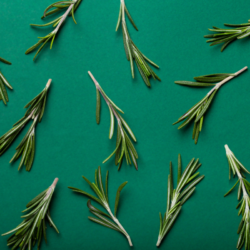Neroli essential oil is orange blossom essence from a single variety of orange trees; sour orange or bitter orange tree . Originally from India and China, the bitter orange very quickly arrived in the Mediterranean basin 1000 years ago. In Antiquity, the orange blossom was notably a symbol of purity ; it even adorned the crowns of brides.
A little history
The bitter orange is a tree native to India and planted on the Mediterranean coasts around the 12th century. It has been used for centuries to soothe stomach ailments , and its fruits, flowers and leaves are used to make three different essential oils: bitter orange essential oil , obtained from the zest , essential oil of neroli , obtained by distillation of the flowers, and essential oil of petit grain bigarade obtained from the distillation of the young branches. In the end, each of them has a very different chemical composition .
Did you know ?
“Neroli” is basically the transformation of the name of a small Italian town located 50 km north-east of Rome: Nerola. This city of barely 2000 souls had a prince, Don Flavio I (1620-1698), first prince of Nerola who took as his wife in February 1675 the French Anne-Marie de la Trémoille (1642-1722).
It is said of Princess Nerola that around 1680 she got into the habit of perfuming her gloves with neroli essence, but also her clothes, the draperies of the palace, even her bath. Wearing perfume profusely, it is said, she made fashionable this essential oil which was, at the time, no less rare and expensive than today, going so far as to make it inseparable from the small town of Nerola. .
What are the pharmacological properties of Neroli flower essential oil ?
Action on the liver:
Limonene is choleretic , detoxifying, hepatoprotective and antioxidant . The detoxifying action is in fact linked to the stimulation of cytochromes P-450 or phase 2 enzymes such as glutathione-S-transferase.
Action on the central nervous system:
Linalool exerts in particular a stimulating, sedative and anticonvulsant complex action . It promotes learning and memorization by acting on nicotinic receptors. It reduces motor activity and potentiates sleep. The anticonvulsant action is related to the decrease in the release of glutamate, a stimulating mediator of the brain. It acts on NDMA, the glutamate receptor, by reducing nerve transmission, thereby inducing an antiepileptic effect . Linalyl acetate is also calming .
The essential oil of Neroli fights against mismatching to situations , by hypersensitivity; People affected by everything: we don’t dare to say anything anymore, because they are hyper-reactive, hyper-stressed (HE complementary to Chaemelum nobile ).
This oil is also antidepressant , it “retunes” it is said. It is in fact neurotonic and rebalancing .
Analgesic and anti-inflammatory effects:
Linalool binds to opioid receptors and also exerts an opiate-like analgesic action . It thus reduces the edema induced by carrageenan demonstrating an anti-inflammatory action . In addition, linalool interferes with calcium channels at the neuromuscular junction and reduces striated muscle contraction and induces local anesthetic action .
Cortison-like , the essential oil of Neroli stimulates the pituitary-adrenocortical axis , interesting in prolonged inflammatory states.
Musculotropic antispasmodic effect:
Linalool also opposes the release of acetylcholine and reduces muscle contractions . Linalyl acetate is also antispasmodic .
Antimicrobial and antiparasitic effects:
The antibacterial action is demonstrated in vitro against Campylobacter jejuni, Escheriecha coli, Listeria monocytogenes , staphylococcus aureus as well as Pseudomonas aeruginosa . Linalool is active against giardiasis ( Giardia lamblia ), leishmaniasis ( Leishmania amazonensis ) and lice.
Digestive effect:
Limonene reduces nausea by acting on gastric motility as well as gastric acidity during gastro-oesophageal reflux.
Neroli essential oil notably stimulates the digestive microcirculation .
Action on the skin:
Limonene regulates the sebum of the scalp . Neroli is therefore astringent and tonic for the skin .
Other properties:
- Lymphotonic as well as decongestant
- Inhaling neroli essential oil helps relieve symptoms of menopause , increases sexual desire, reduces blood pressure in postmenopausal women
- Improves the symptoms of premenstrual syndrome, inhaled, potentiation by the HE of Damask rose
- Antifungal
Does Neroli essential oil require any precautions for use?
- Avoid in combination with cortisone , risk of drug interaction
- Do not use over a prolonged period, at the risk of resting the pituitary-adrenal axis and of suffering acute adrenal insufficiency when stopping taking EO
- Avoid applying EO in the evening (or before any rest period)
- Not recommended for people with osteoporosis, due to the inherent risk of decalcification
- Dermocaustic, revulsive action on the skin in its pure state and aggressive for the mucous membranes (redness, irritation, pruritus), not for pure use, dilution required beforehand
- Enzyme inhibitor, risk of drug interactions ( geraniol )
- Beware of possible gynecomastiantes effects in prolonged use, linalool and linalyl acetate show anti-androgenic activity and weak estrogenic activity by binding to estrogen receptors. Linalool and linalyl acetate prevent the production of testosterone, these molecules are therefore to be avoided in the long term in male individuals as endocrine disruptors
- Contraindicated in children under 8 years old
- Caution in case of oral renal failure
- Contraindicated in pregnant women ( limonene induces uterine contractions) or breastfeeding
- Contraindicated in epileptics or people with a history of seizures
- No wet inhalation
Medical bibliographic sources and clinical trials :
- Choi SY, Kang P, Lee HS, Seol GH. Effects of Inhalation of Essential Oil of Citrus aurantium L. var. amara car on Menopausal Symptoms, Stress, and Estrogen in Postmenopausal Women: A Randomized Controlled Trial. Evidence-based Complementary and Alternative Medicine : eCAM. 2014
- Heydari, N., Abootalebi, M., Tayebi, N., Hassanzadeh, F., Kasraeian, M., Emamghoreishi, M., & Akbarzadeh, M. (2019). The effect of aromatherapy on mental, physical symptoms, and social functions of females with premenstrual syndrome: A randomized clinical trial. Journal of family medicine and primary car e
- Heydari, N., Abootalebi, M., Jamalimoghadam, N., Kasraeian, M., Emamghoreishi, M., & Akbarzadeh, M. (2018). Investigation of the effect of aromatherapy with Citrus aurantium blossom essential oil on premenstrual syndrome in university students: A clinical trial car study. Complementary therapies in clinical practice
- Heydari N, Abootalebi M, Jamalimoghadam N, Kasraeian M, Emamghoreishi M, Akbarzaded M. Evaluation of aromatherapy with essential oils of Rosa damascena for the car management of premenstrual syndrome. Int J Gynaecol Obstet. 2018
- Azanchi T, Shafaroodi H, Asgarpanah J. Anticonvulsant activity of Citrus aurantium blossom essential oil (neroli): involvment of the GABAergic system. Nat Prod Commun. 2014
- Ammar AH, Bouajila J, Lebrihi A, Mathieu F, Romdhane M, Zagrouba F. Chemical composition and in vitro car antimicrobial and antioxidant activities of Citrus aurantium l. flowers essential oil (Neroli oil). Pak J Biol Sci. 2012


